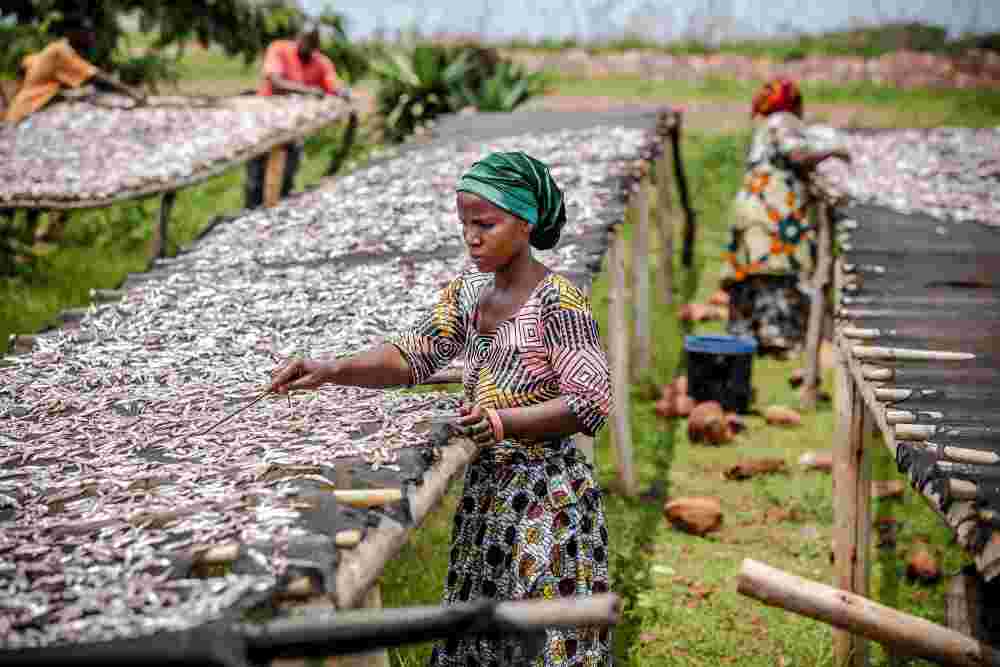Empowering Women in Small-Scale Fisheries for Sustainable Food Systems (2020-2021)
Malawi, 2020 - 2021
Get Microdata
Reference ID
MWI_2020-2021_EWSFSFS_v01_EN_M_v01_A_OCS
Producer(s)
Nicole Franz, Lena Westlund, Molly Ahern
Collections
Metadata
Created on
Feb 06, 2023
Last modified
Mar 10, 2023
Page views
80996
Downloads
912
1.5.5.11 Describe any forms of discrimination or hardships women experience in the fishing sector. (x1_5_5_11_describe_any_forms)
Data file: data_anon_kii
Overview
Valid:
10
Type:
Discrete
Width:
255
Range:
-
Format:
character
Questions and instructions
Categories
| Value | Category | Cases | |
|---|---|---|---|
| - Access to fish is difficult – women compete with men and usually fishermen collect cash in advance and provide fish later. - Not all women know how to process fish and they employ others to do that. sually women are overcharged in that sense. - | 1 |
10%
|
|
| - Competition or auction when buying fish, SSF struggles to access fish because of inadequate cash. - Loss of fish when marketing due to thievery - Transportation is expensive - In some cases fishermen demand sex for women to access fish. | 1 |
10%
|
|
| - Cultural belief does not allow women to take positions amongst men or stand before men. In Mbenje Island, no woman is allowed to access this area, only men can visit the area following protocols laid down by local traditional authorities. | 1 |
10%
|
|
| - In public life men dominate discussions; women sit back and are sidelined - Women are expected to carry out all household chores which has a bearing on the time to do other productive activities - Women lack knowledge of rights and/or laws relating | 1 |
10%
|
|
| - Not entrusted with leadership position, especially the chairperson position which at times can be used to disadvantages of women when it comes to decision making. - Though VSL are operating in most areas, women in fishing groups are not linked to est | 1 |
10%
|
|
| - Women are not allowed to participate in fishing activities at Mbenje Island and is discriminatory in nature. Cultural laws favours men, while excluding women. - At the Beach, women are not allowed to get close to fishing nets because of traditional | 1 |
10%
|
|
| - Access to fish is difficult; women compete with men when buying fish, the process favours those with huge capital unlike SSFs. - Fishermen collect cash in advance and provide fish later. The arrangement is risky especially for SSF and usually women wo | 1 |
10%
|
|
| - Fishermen do auction their fish. SSF struggles to access fish in that arrangement because of inadequate cash, men who has large capital will easily buy. - In some cases, fishermen demand sex from women to access fish. However, women also offer sex i | 1 |
10%
|
|
| - No answer | 1 |
10%
|
|
| - Sex for fish is very common. Usually men demand for sex in order for women to access fish. - Most women in SSF are unable to access to loans from financial institutions due to collateral issues. - Women access fish at the mercy of fishermen and are | 1 |
10%
|
Warning: these figures indicate the number of cases found in the data file. They cannot be interpreted as summary statistics of the population of interest.
